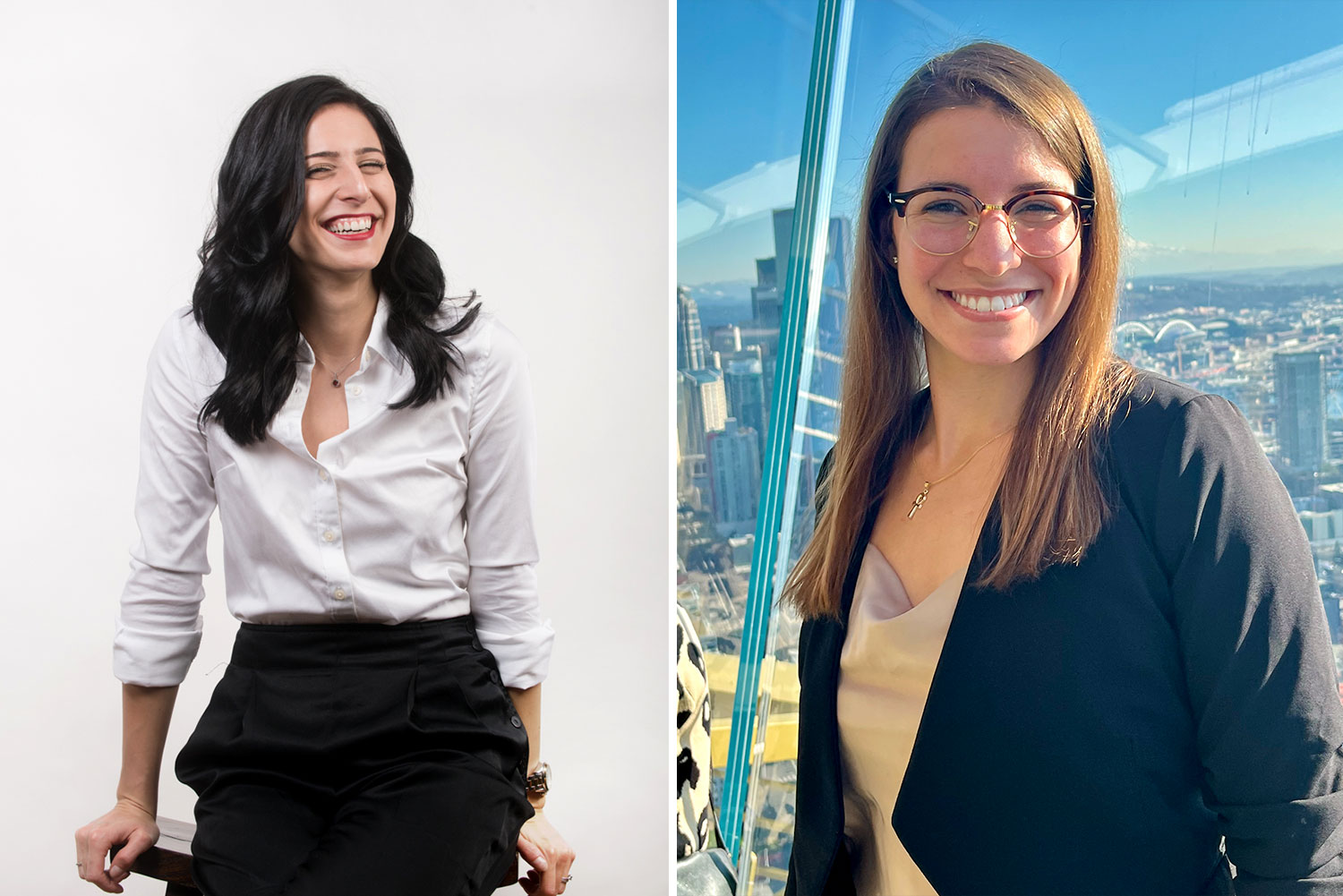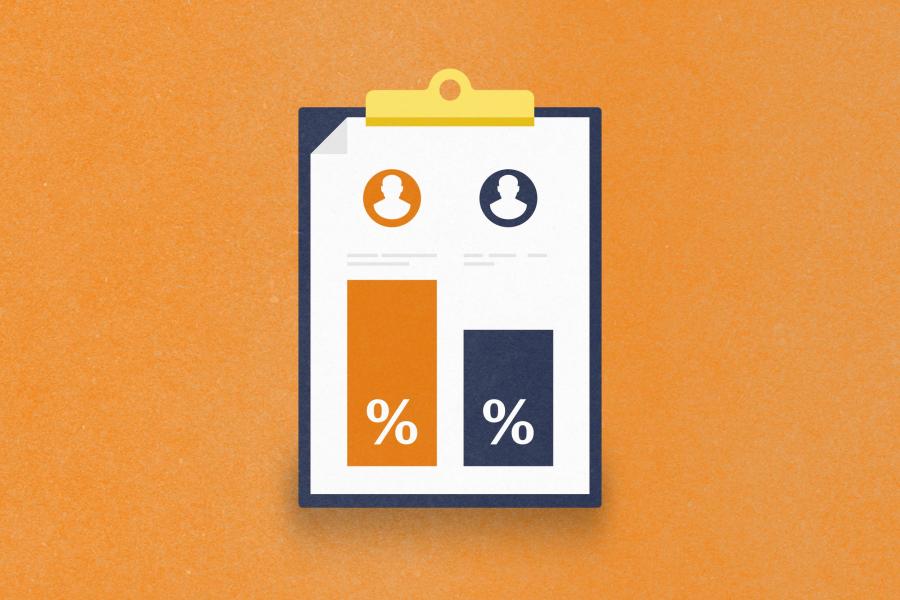Nouwairi: I had an excellent chemistry teacher in high school, Joe Morris, who made the subject enticing. During one of the classes in the beginning of the semester – I think we were learning to balance chemical equations or starting stoichiometry – I got a gut feeling that learning more about this field was right for me.
I didn’t decide to pursue my doctorate until my junior year of high school when my physics teacher, Dr. Thomas O’Neill – who somehow made deriving physics equations an exciting challenge – offhandedly mentioned that people get paid for pursuing a doctorate in a core science, such as chemistry, math or physics.
Q. What continues to attract you to the field so much?
Turiello: I continue to be attracted to chemistry on the basis that it is always challenging. I am personally really energized by trying to solve a problem and reaching the end of my own knowledge, getting really uncomfortable, and using all of my resources to find the solution through research. Chemistry is forever engaging; from my perspective, there is always something to learn, another boundary to break, and something to be discovered.
Nouwairi: Chemistry can be an incredibly interdisciplinary field. In professor James Landers’ [UVA] Lab, we collaborate with mechanical and software engineers, medical personnel, biologists, statisticians, forensic scientists, and more to design, build and optimize microfluidic assays and mechatronic systems to automate those assays. The opportunity to learn about how chemistry can be applied in a multitude of fields and collaboratively work through scientific challenges on a daily basis is extraordinarily exciting.
Q. Can you tell us about your experience as an intern at LVG and how you think it might help you as you move forward with your career?
Turiello: As an intern under the direction of Josh Mauldin, Cortney Mushill and Johnathon Dooley, the priority this semester has been to review intellectual property and generate pitch decks for presentations to biotechnology and pharmaceutical companies seeking in-licensing at the 2022 BIO International Conference. Developing these decks can be tricky and requires curating a narrative for reviewers that illustrates the potential impact of the work as a whole, rather than showcasing the experimental details or early hurdles.
The team met with us each week to discuss our decks, ensuring that UVA technologies were properly detailed and accurately depicting each creative, robust approach. The experience has certainly informed my role as a Ph.D. candidate in James Landers’ lab. I’m certain my new skills will be an asset as I move forward with my projected career goals.
Nouwairi: In our research lab, we work to create technology with the potential for commercialization. Through LVG, we have been putting together marketing material, specifically pitch decks, for UVA technology that will be shown to interested companies seeking in-licensing. It has been informative to see what goes into tech transfer from a legal standpoint as opposed to a science viewpoint.
For example, as scientists, we tend to emphasize the details in methodology and the results of every experiment that led to our conclusions. But when pitching to a company or investor, it is more important to focus on the overall impact of a technology and show just a few influential pieces of the data that support the bigger picture. Knowing this, we have adjusted how we pitch our research when applying for grants, talking to potential sources of funding, and even updating collaborators. Working with LVG has been a wonderful learning experience.
Q. Was there anything that you were surprised to learn about LVG during the course of your internship?
Turiello: Prior to completing an internship with LVG, I had no concept for the extent to which the licensing team was involved with pitching UVA technology. My impression was that LVG engaged with UVA inventors to determine the potential impact of an invention, guide inventors through the patent process, and manage any resultant licensing endeavors. In reality, they are also working to develop and maintain relationships with several industry partners, pitch technology to companies seeking in-licensing, and work to support entrepreneurial activity at the University.
Nouwairi: I knew LVG worked to file disclosures and patents, as our research lab has experience with this. I was surprised to learn just how many UVA technologies and companies LVG works with. Specifically, I did not realize that LVG pitches technologies at conferences, which is what we are assisting with through the internship. Further, I have learned that LVG receives hundreds of disclosures, executes close to 100 licensing transactions, and earns more than 50 patents while launching multiple UVA spin-out ventures each year.
Q. Do you know what you’d like to do career-wise?
Turiello: While I initially saw myself going back to government work, I am now interested in entering the start-up world. Last year, I was fortunate enough to work collaboratively with MicroGEM, a local company, toward the development of a rapid, saliva-based, point-of-care PCR test for COVID-19. The company was successful in raising almost $60 million in capital from the National Institutes of Health RADx initiative and recently acquired emergency-use authorization from the FDA. The energy of the entire endeavor and the rapid progress we made toward common goals to meet tight deadlines was so exciting and I had never experienced anything like it.
Since then, I have taken advantage of every opportunity to learn more about the start-up process, including taking Ph.D.-plus courses on commercialization and the role of business in society, attending local CvilleBioHub panel discussions, and joining the biotech community for Virginia Bio conferences.
Nouwairi: I have another year until I graduate, so I don’t have any jobs lined up yet. However, I have also been attending CvilleBioHub events and learning more about the wonderful, tight-knit biotech community here in Charlottesville. While I was initially considering government work, I have become more interested in working at a local startup or company after working collaboratively with MicroGEM.
To learn more about LVG’s internship program, contact Cortney Mushill at cortney@virginia.edu or stop by LVG’s office on 722 Preston Ave.










